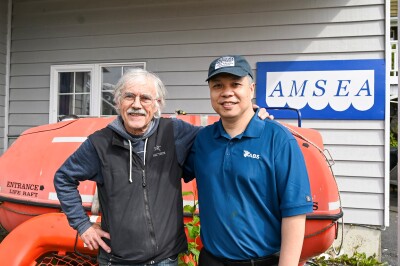Mending Magnuson
What I expected when I flew into our nation's capital this May for NOAA's Managing Our Nation's Fisheries conference was a lot of talk about towing the line, the status quo, and the wealth of promise catch shares hold for fisheries across the country.
What I found blew away all of my assumptions. The conversation kicked off with Alaska crab skipper Keith Colburn calling catch shares just one tool in the management toolkit — a surprising start, considering not too long ago NOAA's leadership was touting them as a panacea. Then representatives from all eight fishery management councils asked for flexibility in Magnuson's rebuilding timelines. This is a significant show of solidarity, which I hope will clarify for skeptics that flexibility in Magnuson is not an end-run around sound management.
To understand the purpose of lending flexibility to rebuilding guidelines, we need only look at the data. Some fisheries adhere to the timeline, some exceed its requirements by rebuilding quickly, and some simply don't respond to changes in fishing pressure. On day two of the conference, Dr. André Punt, University of Washington fisheries science professor, demonstrated quite clearly that "the 10-year rebuilding timeline is ideal but only works if you have perfect information." I think we can safely say that no fishery in history has ever had perfect information. In many cases nationwide, the best available data is a far cry from perfect.
We love to tout our rebuilding successes. As well we should, because U.S. fisheries are healthy and are managed for sustainability. Now is the time to turn our attention to preserving healthy fishing communities.
One of the most remarkable suggestions I heard at the conference was to ease into changes resulting from new data. If a new survey shows a drastically lower or higher biomass, you roll out new measures over several years. Another recurring theme was to build in exceptions for mixed-stock species. This would truly be a game-changer for groundfish fleets.
The conference in Washington gave me hope, not necessarily that we will bring the industry back to its heyday or even preserve it as we now know it. What I witnessed at these sessions was a willingness to listen, compromise and use common sense. Washington doesn't often work that way, but it can happen. What Congress does next with the ball in their court remains to be seen. But if there's one thing the fishing industry has going for it, it's that the people who get behind it by and large do so because their hearts are in the right place and not because it pays to be on our side.
We can chart a course to a future for fishing with reason, integrity and an honest day's work.
– Jessica Hathaway






